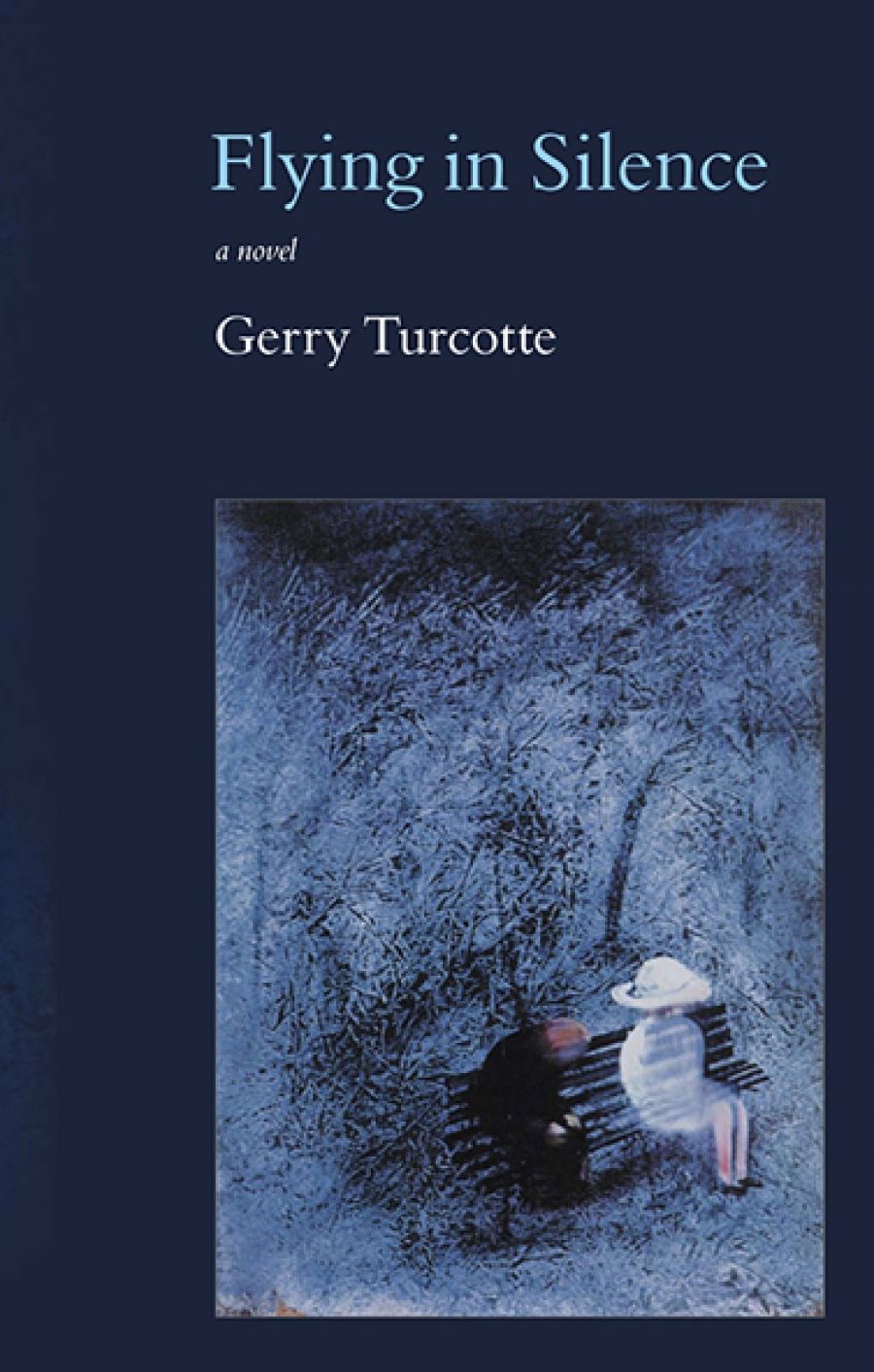
- Free Article: No
- Contents Category: Reviews
- Review Article: Yes
- Article Title: Work in the Margins
- Online Only: No
- Custom Highlight Text:
Gerry Turcotte’s Flying in Silence is a book of boyhood memoirs and family secrets, yet it creates a genre all its own. It contains an anatomy of depression and speaks of a family’s inability to cohere. Nevertheless, it swells with compassion and a deep commitment to life and living.
- Book 1 Title: Flying in Silence
- Book 1 Biblio: Brandl & Schlesinger, $25.95 pb, 189 pp
Turcotte’s depiction of the parents is superb. There are no bones about the fact that they have let their son down. We share the confusion caused by watching a mother slide in and out of darkness, a father battle with poverty and the two struggling to communicate both their pain and love. The adult narrator recognises that: ‘It is the gift of children to cross those lines unchallenged.’ But his awareness of this gift comes too late. He doesn’t feel that he was able to be an effective translator of either language or emotions within his family and thus able to heal his parents’ pain. However, because of this edge of doubt, he creates both a new language and a new world, one in which people are allowed their imperfections, and in which the reader is privileged to witness and treasure the beauty of individual moments and small acts of compassion.
The narrator’s literal confusion about language is often wickedly comical: ‘“You have a foul mouth,” he whispered, and I thought of the chickens and hens on my uncle’s property.’ At times, it is cruel and heartbreaking. However, Turcotte’s awareness of the vagaries of language go much further than this. His preoccupation with the devastating gap between words and their meaning and his understanding of the power, both destructive and formative, of leaving things unsaid, take this novel and anyone who reads it into a new way of hearing human communication. The most striking thing about Flying in Silence is that, despite its multi-layered theme of the weakness and incapacity of language, the words used to tell this story sparkle with precision. Even chapter titles such as ‘Sasquatch’ and ‘Hieroglyphs’ are constructed with playfulness and wit. Observations on human behaviour are razor sharp, the comparison between the two uncles (the brutish Drew and the eccentric mon oncle) a stunning character study. The narrator admires his father’s ability to cut cleanly through glass and to repair broken windows. Similarly, we enjoy the benefits of Turcotte’s ‘work in the margins’ – his economic use of language that leaves the centre, his story, so clear.
Towards the end of the novel, the narrator watches a trapped bird attempt to fly through a window. Time and again it fails, flying in silence, leaving one with the impression that, despite the pitfalls inherent in human communication, the greatest tragedy is to have no voice or no chance to use one. There is no doubt that the narrator’s experience of silence in a family is one of pain and fragmentation: ‘I knew then that I was leaving. I knew that there was no way the shadows would ever lift from my family.’ Yet the novel does not leave one with a sense of bleakness. It is, rather, almost musical in both its shape and function. It presents a number of themes and motifs, shaping them into a whole, but leaves the listener (or reader) with the task and gift of making meaning out of what has been experienced.
It is perhaps ironic that a person with such a mistrust of language should choose writing as a profession. More likely, this curiosity and exhaustive investigation of language are precisely what give Turcotte’s words such potency. Here we have, on one hand, a vital reminder of how much rigour and questioning must be applied to the creative process and, on the other, a beautiful work of literature, an affirmation of the possibilities of words and writing, and above all, a testament to being human.


Comments powered by CComment